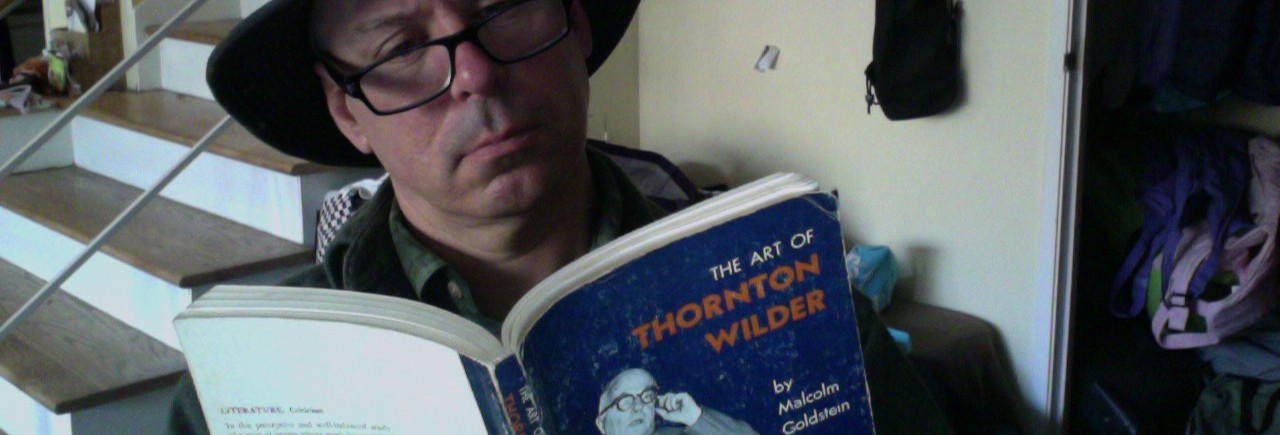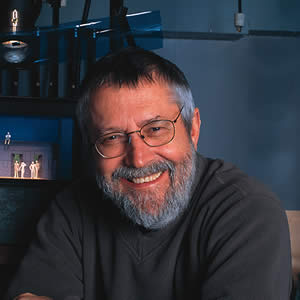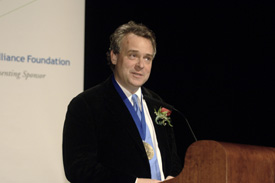Long Wharf Theater has had four artistic directors in its 50 year history, and every one of them is scheduled to be at the theater Sunday at 2 p.m. for a discussion of the Long Wharf’s illustrious past, admirably sturdy present and bright future.
Jon Jory co-founded the place five decades ago, and left within just a few years. He made his greatest mark on the regional theater world by running the Actors Theatre of Louisville and its renowned Humana Festival, and also by shepherding the works of Jane Martin into the public eye.
Arvin Brown was by far the longest serving artistic director of the Long Wharf. Plucked abruptly from his post as director of the children’s theater program in the mid-1960s to lead the theater as a whole, he ended up running it for 30 years. He’s since had a distinguished career as a director of TV dramas, from Picket Fences and Chicago Hope in the mid-‘90s to The Closer and NCIS in recent years. It was Arvin Brown who was artistic director during Long Wharf’s greatest period of prosperity and critical success. He also provided the American premieres of numerous British and Irish works, started Stage II as a space to workshop new American plays, sent revivals of classics by O’Neill, Miller and others to Broadway, and used the mainstage to think big, doing operas and big Russian dramas there. He was also married to one of the Long Wharf’s most important and popular performers, Joyce Ebert.
After a major search, Brown was succeeded by Doug Hughes. He lasted about five seasons before leaving suddenly, announcing that he could no longer work with a certain LWT board member. Among his accomplishments during his short tenure were the American premiere of Moliere’s The Bungler, Keith Glover’s reworking of the musical Golden Boy, the Cornerstone Theater’s locally relevant adaptation of Brecht’s The Good Person of Szechuan, the world premiere of Lynn Redgrave’s The Mandrake Root, Synge’s She Stoops to Conquer with a new rhyming intro by Mark O’Donnell, the production of Margaret Edson’s Wit that went on to conquer New York, and, oh, much more. It was a heady time. Hughes now directs regularly on Broadway; shows he’s helmed have won Tonys and Pulitzers.
When Hughes left, Greg Leaming (who will not be there Sunday) was the interim artistic director for an entire season while another search was conducted. The guy the board chose was Gordon Edelstein, who’d been Associate Artistic Director to Arvin Brown for much of the ‘90s and who’d been on the very short list of top candidates when Hughes was selected. Between Long Wharf posts, Edelstein ran ACT in Seattle. He’s done over a dozen seasons as Long Wharf’s artistic director now, and has distinguished himself with both new works (especially by Athol Fugard) and American classics (O’Neill, Miller, Williams).
Oh, and all them seem to dig Chekhov and Ibsen.
There’s so much that these four Long Wharf top dogs could discuss:
- the realities of running a theater in a food terminal, and the many (often unsound) proposals to move elsewhere.
- relations with Yale and its drama school, which has nurtured many projects, actors and adminstrators that ended up at the Long Wharf—and which sought to take it over in the early ‘70s, when the Long Wharf had hard times and the Yale School of Drama was expanding.
- signature productions.
- the shows that could have happened at Long Wharf but didn’t.
- The shows that should’ve done better, gone further, been better known.
- Backstage hijinks and headaches.
- being a regional theater that operates so close to New York City.
- the various restaurants next door.
- the unique theater sensibilities of New Haveners.
- Long Wharf icons, from Joyce Ebert and Bill Swetland and other local treasures onstage to Edgar Rosenblum, Pam Tatge and others behind the scenes.
I’ve seen every Long Wharf MainStage and Stage II production since early 1992 (and some scattered ones before that), and if I had to pick one memorable season from the three artistic directors whose work I experienced there—centering around productions they themselves directed—I’d go with 1994-95 for Brown (for his direction of Saturday, Sunday, Monday and The Entertainer), 1998-99 for Hughes (when he did Playboy of the Western World and Importance of Being Earnest on the mainstage and The Grey Zone on Stage II) and 2005-2006 for Edelstein (for his superlative production of The Front Page). And boy, do I wish I could have seen the 1965-66 season where Jory directed The Plough and the Stars, Volpone, Trojan Women and Uncle Vanya.
I will be unable to attend Sunday’s powwow, but I urge you all to go and report back on it. A one-of-kind assemblage of artistry and directorship, at one of the country’s greatest regional theaters as it marks its half-century anniversary. The 2 p.m. June 7 event is free. 222 Sargent Dr., New Haven. www.longwharf.org




